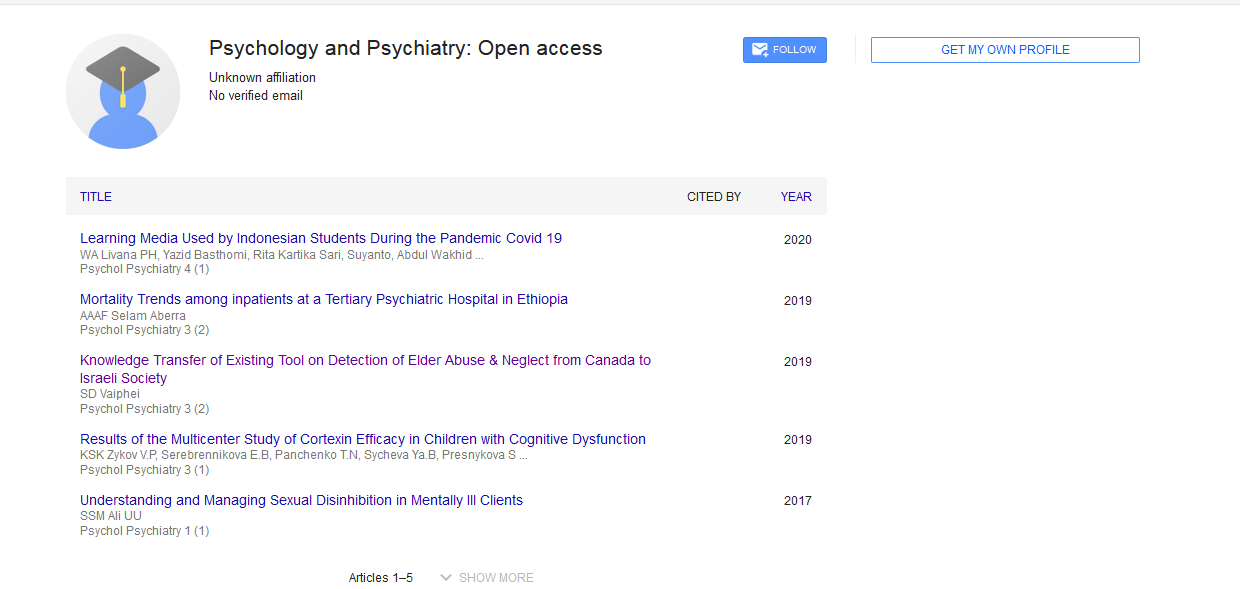Psychological immunity: content, structure and functions
*Corresponding Author:
Copyright: © 2020 . This is an open-access article distributed under the terms of the Creative Commons Attribution License, which permits unrestricted use, distribution, and reproduction in any medium, provided the original author and source are credited.
Abstract
Statement of the Problem: Psychological immunity is cognitive-behavioral neoformation that develops in ontogenesis and provides a sense of psychological well-being and a condition of psychological safety. The main element of the structure of psychological immunity is the boundaries of the psychological space of the individual. The width and flexibility of borders determines not only the characteristics of the psychological space, but also the characteristics of psychological immunity. The main personal property in the structure of psychological immunity is awareness, which allows you to track, i.e. to monitor the current state of the person and, if necessary, through disgust and anxiety, launch the corresponding patterns of behavior. Meaningfulness is the second important component in the structure of psychological immunity, which determines the intensity and direction of a person’s response. The higher the levels of awareness and meaningfulness, the faster and more consistent the situation is the response to the. If psychological immunity successfully copes with its tasks, then there is no need for it to turn to psychological defenses or coping behavior. The duration of the effectiveness of psychological immunity is determined by the characteristics of the psychological stability (third important element) of a person, which contributes to a proportionate and adequate response in stressful and frustrating situations. Absolutely no matter, positive or negative events occurred on a person’s life path: both provoke the occurrence of responses in proportion to the impact. So, extreme forms of reaction to a negative impact will be patterns of behavior caused by dysphoria: addictive behavior, delinquent behavior, suicidal behavior, and euphoria (risky behavior) on a positive one. To prevent such destructive forms of behavior, psychological immunity reduces the intensity of response to impacts, including it in a person’s life experience, so with age and experience in experiencing various situations, the brightness of the experience of events decreases.

 Spanish
Spanish  Chinese
Chinese  Russian
Russian  German
German  French
French  Japanese
Japanese  Portuguese
Portuguese  Hindi
Hindi 